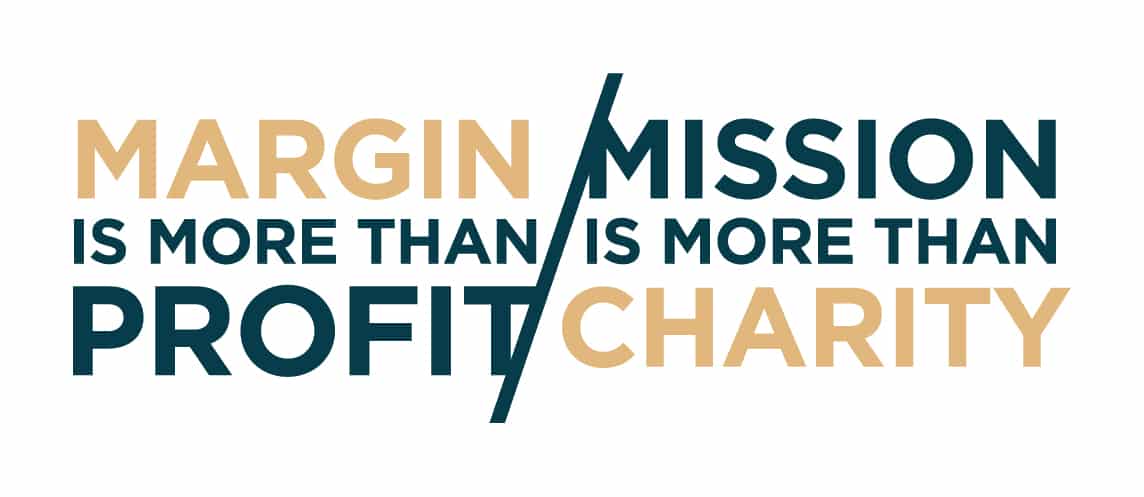Best Practices for the Management & Ministry of Accounts Receivable
Sales are a mirage of a growing business if we are not collecting from them. Past-due accounts threaten our ability to fund the operations or meet payroll—let alone invest in growth opportunities. Late payments create a domino effect on our suppliers, perpetuating an unvirtuous cycle that damages our testimony as Christians.
Our disciplines in extending credit and collecting receivables influence the health of our BaaMs (Business as a Ministry). Stewardship demands robust credit collections and cash flow practices—to hold others accountable, to optimize workflows, to honor our suppliers and customers, and to be a light when hardships affect financial stability.
Avoid Overextended Accounts
Business relationships come with the expectation that each party will fulfill its commitment. Many companies suffer from slow-paying customers, warranting a systematic approach to granting credit and collecting receivables. Just as the Old Testament offers principles for us to follow for human flourishing, clear contract terms with our partners enable both companies to flourish. A lack of planning, poor enforcement, or a failure to focus on the function of accounts receivables can cause unintended consequences.
6 Common Failures/Mistakes:
- Delaying follow-up with customers when payments are past due
- Allowing sales reps to override credit limits—resulting in losses from bad credit risks
- Neglecting to train staff on how to deal with late-paying customers
- Inaccurate billing, invoicing, or credit terms
- Misallocating cash payments, confusing which payments are outstanding
- Lacking the accountability of a KPI owner
Conducting collections is a delicate balancing act. We must navigate variable payment behavior and the economic climate while nurturing positive customer relations and advancing our company’s mission. As a general rule, collecting payment within 90 days is critical.
Strategies for Improving Receivables:
- Approve customers carefully – Establish clear and concise policies for issuing credit to customers who can afford to borrow.
- Offer payment options – The more options and incentives you provide, the more likely your customers will pay on time.
- Maintain customer master data – Terms, contact information, and financials must be up to date and accurately reflected in billing and collection systems.
- Invoice promptly – A billing process that leverages strategies like automation, invoice generation and reporting, electronic billing systems, exception reports, and customer portals ensures accurate invoices are sent promptly.
- Know and track A/R metrics – Prioritize customers by value-at-risk and days sales outstanding (DSO), and establish an escalation process.
More Than a Necessary Evil
C12 repeats the mantra, “no margin, no mission”—a phrase coined by a nun to express that mission-driven institutions needed more than charity to be financially solid. This perspective can cause collections to be perceived as a necessary evil. According to the ideology of our 5-Point Alignment Matrix, every dimension of the business—even subprocesses like cash flow management—is shaped by our mission and presents an opportunity for ministry.

Preventing a False Gospel
Silence toward debtors speaks volumes to our employees. Christians may consider it gracious to delay collection efforts, but failing to hold customers accountable practices a false gospel that could infect our own company, not just the payer. Our collection practices must align with our core values and steer clear of guilt, shame, and strong-arm tactics.
Christians risk falling into two ditches regarding A/R and A/P, neither of which glorifies God:

Fear of hurting relationships, Christian testimony, or future business can drive behaviors that actually cost us all three in the long run. Ideally, a BaaM mindset lends itself to relationship building and ministry continuity, recognizing the eternal reward beyond a single payout.
Demonstrating the True Gospel
Behind every debt and debtor is a story. Though we cannot forgive every debt, the collection process affords us the opportunity to highlight God’s goodness and His forgiveness in our lives. We can demonstrate forms of forgiveness by forgoing lawyers and collectors, coming alongside our customers, and understanding why they have fallen behind. We can position ourselves to help.
Our faith shines through when we choose to resolve conflict peacefully and graciously in the face of blatant reluctance or lingering hardship. Instead of harassing debtors, we can stand out by managing conversations in the following ways:
–Take a proactive approach. Persistence and consistency reduces past-due receivables and bad-debt write-offs.
–Make the collection process personal. Instead of customary automated letters, use a personal approach with a call to the customer’s payables department.
–Assume good intent. Rather than assuming a late payment is intentional, ask clarifying questions. (Is there a crisis? Is there confusion? Are contracts clear?)
–Let go of ego. A collector’s greatest power lies in the capacity to exert positive influence, speaking with collaborative language.
–Harness your tone. Customers who sense cooperation and mutually beneficial solutions are more willing to discuss financial information, leading to timely resolution.
–Draw a line in the sand. Asking probative questions will assist in determining whether to trust a debtor to resolve the balance.
The Will and Ability to Pay
Each of our customer-specific scenarios bears different implications and warrants different considerations. For each scenario, our companies can leverage available resources and pursue financial restoration while preserving positive relationships and proclaiming love and truth. Mike Sharrow, C12 CEO, offers ways to express the truth and grace of the gospel to customers according to their will and ability to pay.
Do you view A/P and A/R as components of your BaaM journey with the same commitment as sales, ministry, or culture initiatives?
Building a great business for a greater purpose is a journey, not a destination. We meet in monthly forums to dig into challenges, seize opportunities, and develop strategic plans together. Join us next month as we sharpen our BaaM discipline on topics like this.
June 9, 2021





